During the discussion in groups on the afternoon of May 27, many National Assembly deputies expressed their support for the proposal to extend the transit and stay time of foreigners in Vietnam, as well as increase the duration of e-visas for international visitors to facilitate tourism development.
Scene of the discussion session at Group 14 on the afternoon of May 27. (Photo: THUY NGUYEN).
Continuing the 5th Session program, this afternoon, the National Assembly discussed in groups the draft Law amending and supplementing a number of articles of the Law on Exit and Entry of Vietnamese Citizens and the Law on Entry, Exit, Transit and Residence of Foreigners in Vietnam.
Removing bottlenecks for Vietnam tourism
Regarding this Law project, during the discussion session at Group 14, Secretary General of the National Assembly Bui Van Cuong - a delegate of the National Assembly Delegation of Hai Duong province, suggested that consideration and further proposals should be made on increasing the transit and residence time of foreigners in Vietnam.
"Currently, our regulation of 45 days is only at an average level compared to other countries in the region. It is not really flexible and does not really create conditions for promoting tourism development," said delegate Bui Van Cuong.
Secretary General of the National Assembly Bui Van Cuong speaks at the discussion session of Group 14. (Photo: TRUNG HUNG).
Therefore, the Secretary General of the National Assembly suggested that this issue should be further considered and calculated. “The National Assembly deputies also need to have more opinions so that when synthesizing and explaining, the competent authorities will study further in the direction of possibly increasing this time to 60 days, or even 90 days, to be able to promote tourism development,” the delegate of Hai Duong province suggested.
Delegate Bui Van Cuong analyzed that normally, European and American tourists who travel to Vietnam and then go to ASEAN countries only need to go to one country to be able to go to other countries in the region and return here to return to their home country.
"Obviously, if we consider and calculate this area, we can expand the target audience and that will help promote tourism more," the Secretary General of the National Assembly emphasized.
Commenting on the draft Law, delegate Nguyen Thi Viet Nga (Hai Duong) expressed her agreement with the proposed amendments and supplements to increase the duration of electronic visas from no more than 30 days to no more than 3 months and with multiple entries.
Delegate Nguyen Thi Viet Nga (Hai Duong) speaks. (Photo: THUY NGUYEN).
According to the delegate, e-visas have been issued on a pilot basis since 2017 in the form of online visas for foreigners. At present, e-visas are only valid once and are valid for no more than 30 days. Therefore, the proposal to increase the e-visa validity period as proposed in the draft Law will bring more benefits, the delegate said.
Accordingly, it will facilitate the needs of relaxation, exploitation, market research or investment opportunities for foreign visitors to Vietnam, because this job requires a long stay. If the visa duration is only no more than 30 days, it will greatly affect the opportunity to welcome foreign visitors who need to stay long-term in Vietnam.
In addition, the longer stay for foreign visitors with e-visas will be consistent with the stay for foreigners responsible for establishing commercial presence units or contract service providers in Vietnam.
A delegate from Hai Duong province pointed out that recently, one of the main bottlenecks for international tourists coming to Vietnam is the issue of electronic visas.
Delegate Nguyen Thi Viet Nga gave the example of Vietnam reopening international tourism from March 15, 2022, which is considered quite early compared to other countries in the region, with the aim of opening early to seize the opportunity to recover tourism and receive many international tourists, but the results have not met the requirements when by the end of 2022, it only welcomed 3.6 million international visitors, equal to 70% of the plan.
“Meanwhile, countries in the region have achieved much more impressive results than us, although the opening time of these countries was later than Vietnam, such as Thailand welcoming more than 11 million visitors, Singapore 6.3 million, and Indonesia 5 million, all exceeding the set target. Although Vietnam opened very early and had a roadmap that I think is quite reasonable, it only welcomed 3.6 million international visitors,” analyzed the Deputy Head of the National Assembly Delegation of Hai Duong province.
The delegate pointed out that after the review, one of the reasons was that our visa issuance is not as open as other countries in the region.
Scene of the discussion session at Group 14 on the afternoon of May 27. (Photo: TRUNG HUNG).
In addition, in the context of increasingly fierce competition among countries in the region in tourism as at present, many countries create favorable and attractive conditions for international visitors such as visa exemption, for example, Malaysia and Singapore exempt visa for visitors from 162 countries, Philippines 157 countries, Thailand 65 countries, while Vietnam only has 24 countries. According to the delegate, this is also one of the disadvantages of Vietnam tourism.
In addition, the visa exemption period of ASEAN countries is also very long, from 30 to 45 days, even up to 90 days of stay like in Thailand, while in Vietnam it is only 15 days.
“It can be said that along with the growth of the tourism industry, we have identified attractive products such as long-term resort tourism, eco-tourism... targeting the international tourist market with more abundant revenue than the domestic market and long-term stay in Vietnam, so it is necessary to consider extending the validity period of e-visas,” delegate Nguyen Thi Viet Nga emphasized.
The delegate also suggested that the Drafting Committee review more carefully to get a unified number, because currently the draft Law is using "no more than 3 months" or "no more than 30 days", while other countries usually calculate in days.
A member of the National Assembly's Committee on Culture and Education also expressed his hope that, in addition to extending the validity of e-visas, the Drafting Committee also needs to review to increase the number of countries exempted from visas to Vietnam, because if this issue is too strict, "Vietnam tourism will be at a great disadvantage".
The key to Vietnam tourism taking off
Delegate Nguyen Manh Hung - National Assembly Delegation of Can Tho City. (Photo: quochoi.vn).
Agreeing with the amendments and supplements in the draft Law on the duration of electronic visas and residence of foreigners in Vietnam, delegate Nguyen Manh Hung - National Assembly Delegation of Can Tho City said that these are extremely necessary and urgent contents that need to be amended immediately, so they will be considered for decision during the session.
Citing figures to show that it is necessary to act sooner to promote tourism, delegate Nguyen Manh Hung said that in 2019, before the Covid-19 pandemic, our country reached 19 million international tourists, at that time Thailand reached 25 million visitors. In 2022, our country set a very large post-pandemic recovery target of 5 million international visitors, but the result was only 3.6 million visitors, while the two neighboring countries, Thailand, reached 11 million visitors and Malaysia reached 9.2 million.
“That said, Vietnam’s tourism recovery is very slow. Since the beginning of 2022, Thailand has had many policies on visa extensions, lengthening the length of stay, and facilitating tourists to enter the country online and through all border gates,” said the Standing Member of the National Assembly’s Economic Committee.
Delegate Nguyen Manh Hung said that in the first 3 months of 2023, our country received about 3.7 million international tourists, which is still a challenge compared to the target of 8 million visitors this year. Meanwhile, Thailand aims to welcome 15 million international visitors in 2023; by 2030, when Vietnam aims for 35 million, Thailand aims for 80 million visitors.
“Such figures show that removing visa procedures is one of the most important keys to help Vietnam tourism take off. Because in terms of nature or other conditions, we are not inferior, so why is Vietnam tourism so far behind other countries?” asked delegate Nguyen Manh Hung.
In this amendment to the law, the Can Tho City delegation hopes to apply it to as many countries as possible that enjoy the policy of expanding the length of stay and visas. Through the survey, the difficulty in applying for a visa is a huge barrier, in addition to the quality of service and other attractive incentives.
According to: nhandan.vn
Source link




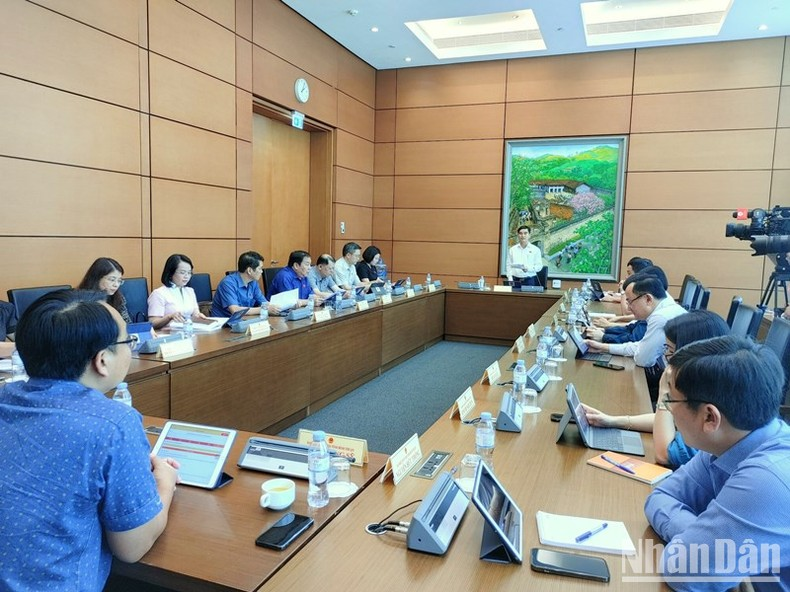
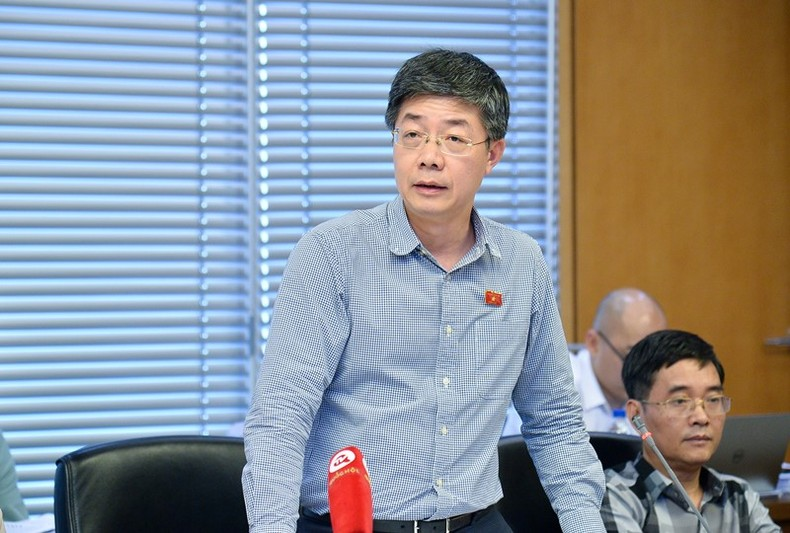

![[Photo] Prime Minister Pham Minh Chinh launched a peak emulation campaign to achieve achievements in celebration of the 14th National Party Congress](https://vphoto.vietnam.vn/thumb/1200x675/vietnam/resource/IMAGE/2025/10/5/8869ec5cdbc740f58fbf2ae73f065076)



![[Photo] Prime Minister Pham Minh Chinh chairs the Government's online conference with localities](https://vphoto.vietnam.vn/thumb/1200x675/vietnam/resource/IMAGE/2025/10/5/264793cfb4404c63a701d235ff43e1bd)
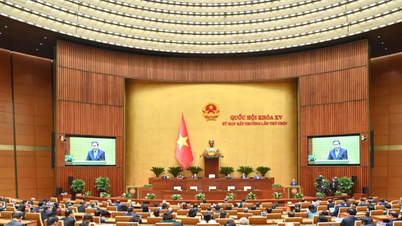





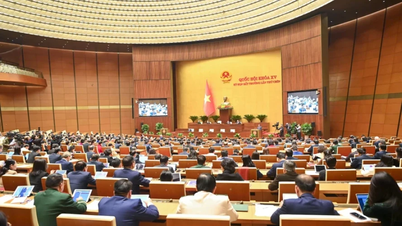















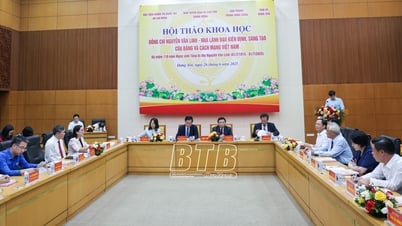


























![[VIDEO] Summary of Petrovietnam's 50th Anniversary Ceremony](https://vphoto.vietnam.vn/thumb/402x226/vietnam/resource/IMAGE/2025/10/4/abe133bdb8114793a16d4fe3e5bd0f12)

![[VIDEO] GENERAL SECRETARY TO LAM AWARDS PETROVIETNAM 8 GOLDEN WORDS: "PIONEER - EXCELLENT - SUSTAINABLE - GLOBAL"](https://vphoto.vietnam.vn/thumb/402x226/vietnam/resource/IMAGE/2025/7/23/c2fdb48863e846cfa9fb8e6ea9cf44e7)




















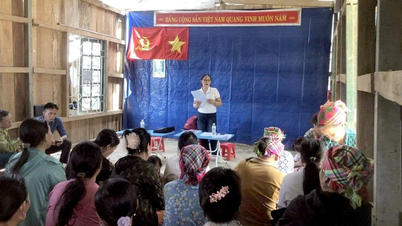














Comment (0)